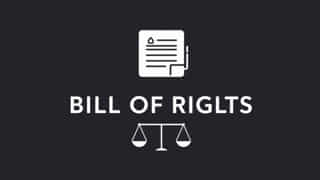The Bill of Rights stands as a cornerstone of American democracy, outlining the essential civil liberties and protections afforded to individuals. It was ratified in 1791 and comprises the first ten amendments to the U.S. Constitution. In modern times, organizations like the American Civil Liberties Union (ACLU) have played a pivotal role in defending and promoting these rights through legal action, advocacy, and public education. The relationship between the Bill of Rights and the ACLU highlights how civil liberties are protected and enforced in real-life scenarios, especially when constitutional rights are threatened by laws, practices, or government overreach.
Understanding the Bill of Rights
Origin and Purpose
The Bill of Rights was created to limit the powers of the federal government and protect individual freedoms. It was drafted in response to calls from several states for greater constitutional protection of individual liberties. James Madison, often regarded as the ‘Father of the Constitution,’ introduced the Bill of Rights to address these concerns and to safeguard freedoms such as speech, religion, and the right to a fair trial.
Key Amendments
The ten amendments include a broad range of protections, such as:
- First Amendment: Freedom of speech, religion, press, assembly, and petition
- Second Amendment: Right to bear arms
- Fourth Amendment: Protection from unreasonable searches and seizures
- Fifth Amendment: Rights related to due process, self-incrimination, and double jeopardy
- Sixth Amendment: Right to a fair and speedy trial
- Eighth Amendment: Protection from cruel and unusual punishment
These rights are vital for maintaining a free and just society. However, they are not always automatically upheld and often require legal defense, especially in controversial or evolving social contexts. This is where the role of the ACLU becomes significant.
The Role of the ACLU
What is the ACLU?
The American Civil Liberties Union is a nonpartisan, nonprofit organization founded in 1920. Its mission is to defend and preserve the individual rights and liberties guaranteed to every person in the United States by the Constitution and the laws of the country. The ACLU uses litigation, lobbying, and public education to advocate for civil rights and liberties.
Legal Advocacy and Impact
Throughout its history, the ACLU has participated in numerous landmark cases involving the Bill of Rights. It often represents individuals or groups whose constitutional rights have been violated or are at risk. Some of the most notable areas where the ACLU intervenes include:
- Free speech: Defending unpopular or controversial speech, including protests and artistic expression
- Religious freedom: Challenging laws or policies that promote or restrict religious practices
- Privacy rights: Opposing unwarranted government surveillance and upholding protections under the Fourth Amendment
- Due process: Ensuring fair treatment in criminal justice procedures and immigration cases
- Equal protection: Advocating against discrimination based on race, gender, sexual orientation, and disability
Through these efforts, the ACLU plays a critical role in ensuring that the promises of the Bill of Rights are not only theoretical but actively realized in society.
Landmark Cases Supported by the ACLU
Scenarios Where Civil Liberties Were Tested
The ACLU has been at the center of many significant legal battles related to the Bill of Rights. These cases often set precedents for how the Constitution is interpreted and enforced. Some examples include:
- Schenck v. United States (1919): Although not a victory for the ACLU, this case challenged restrictions on speech during wartime and later influenced broader First Amendment protections.
- Brown v. Board of Education (1954): The ACLU submitted an amicus brief supporting the end of racial segregation in public schools, reinforcing the Fourteenth Amendment’s equal protection clause.
- Gideon v. Wainwright (1963): The ACLU supported the right to legal counsel for defendants in criminal cases, reinforcing Sixth Amendment guarantees.
- Roe v. Wade (1973): The ACLU was involved in supporting reproductive rights, linking privacy protections to the Fourteenth Amendment.
These landmark decisions show how civil liberties evolve through court rulings and how the ACLU uses the Bill of Rights to guide its legal strategy.
Modern Challenges to Civil Liberties
Technology and Privacy
As technology advances, new questions arise regarding the scope of constitutional protections. The ACLU has taken on cases involving digital privacy, data collection, facial recognition, and surveillance practices. The Fourth Amendment, which guards against unreasonable searches and seizures, is central to these debates.
Freedom of Expression and Protest
Recent years have seen a rise in political activism and protests, prompting scrutiny of the right to free expression. The ACLU often steps in when local or federal authorities restrict demonstrations or target specific groups. By defending protesters’ rights, the organization continues its long-standing support of First Amendment freedoms.
Criminal Justice Reform
The ACLU is also deeply involved in criminal justice reform, focusing on mass incarceration, racial disparities, and harsh sentencing laws. These efforts often invoke the Eighth Amendment and the due process guarantees of the Fifth and Fourteenth Amendments.
Education and Public Awareness
Promoting Understanding of the Bill of Rights
Beyond courtrooms, the ACLU also works to educate the public about their constitutional rights. Through publications, online resources, and school outreach programs, the organization aims to increase civic awareness. Understanding the Bill of Rights empowers individuals to recognize when their rights are at risk and to take appropriate action.
Training Future Advocates
The ACLU invests in the next generation of civil rights defenders by offering internships, fellowships, and advocacy training programs. This ensures continued protection of civil liberties well into the future, aligning with the enduring principles of the Bill of Rights.
The Bill of Rights continues to serve as a powerful foundation for individual freedoms in the United States. The ACLU plays a vital role in upholding these rights through legal representation, policy advocacy, and public education. As society changes and new challenges emerge, the work of the ACLU remains essential in ensuring that constitutional protections are not only preserved but also meaningfully enforced. Through its tireless efforts, the ACLU helps make the ideals enshrined in the Bill of Rights a living reality for all Americans.
